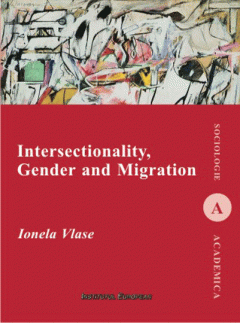Content:
◊ Gender at the core of intersectionality in studying immigration in Romania
◊ Migration and gendered life courses
◊ Gender and Romanians` migrant transnationalism
This book aims to give helpful tips to scholars and students engaged in the study of migration that could benefit from a thoughtful use of an intersectionality approach. Each chapter of this book is constructed as an instantiation of the dynamic and complex relationship between gender and power relations by drawing on examples from migration process. In this way, the reader can gain a finer understanding of subtle processes at play when studying social phenomena. Although the book can be a useful grid line for students and researchers engaged directly with migration and gender scholarship, it can provide interesting insights for those wishing to apply a gender lens to the study of other social practices and behaviors. Gender is not however the only category at stake shaping the unequal access to resources, but it arguably interacts with ethnicity, age, education, and class that further co-produce multiple, layered forms of subordination. One should therefore pay attention to these complex interactions between people`s multiple identities that may generate different forms of subordination among and within groups when considering their socio-historical position of class, education, gender, occupation, marital status, ethnicity, migrant legal status, and so on.
Reviews and comments
Nota
de |

